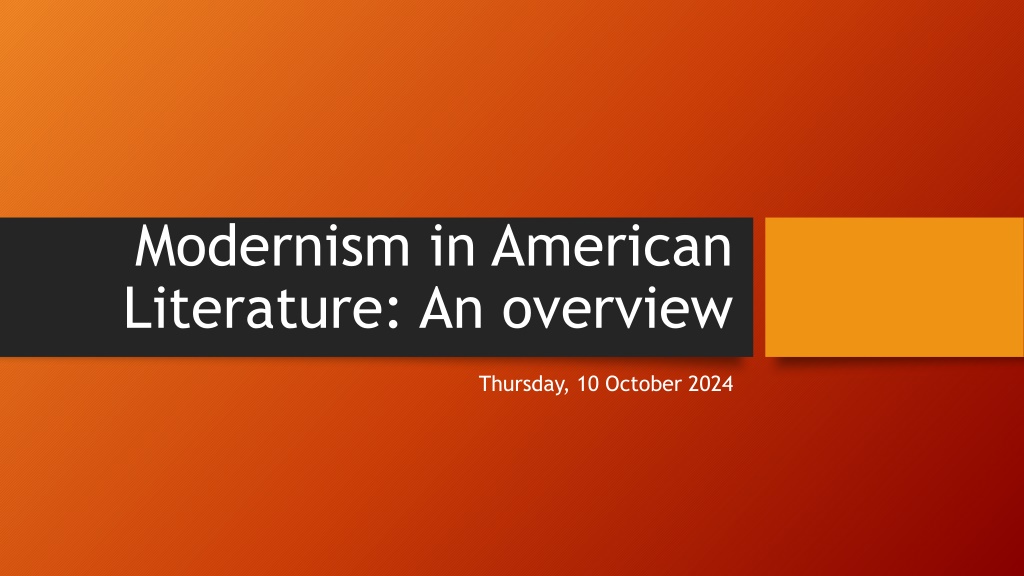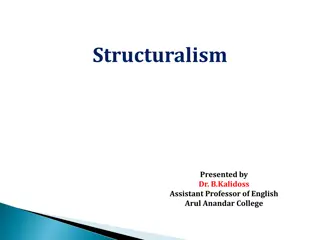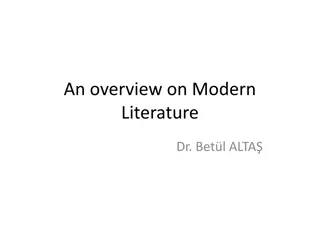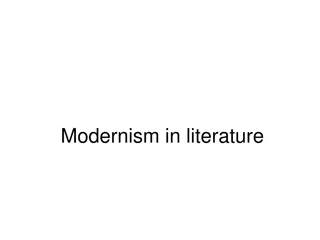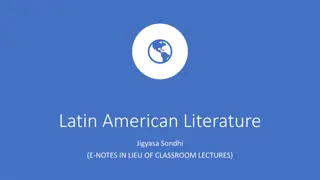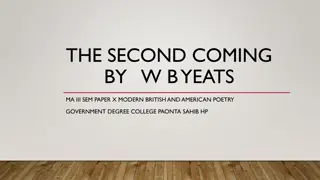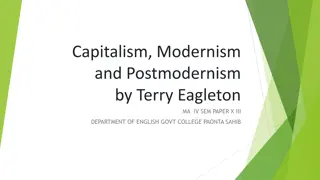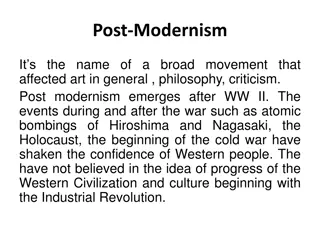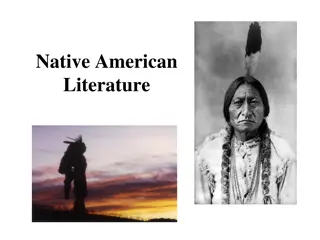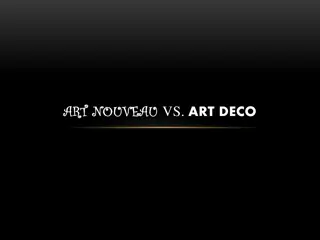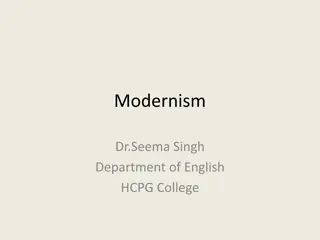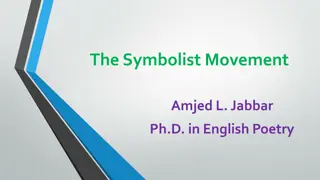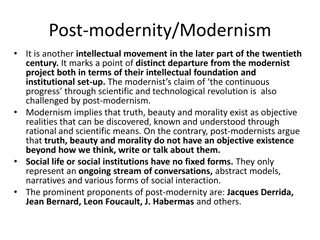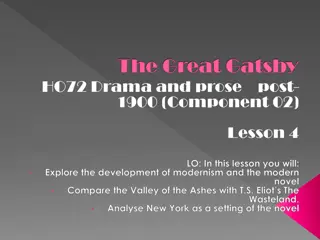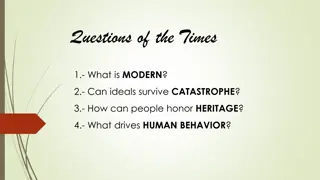Evolution of Modernism in American Literature: An Overview
The modern world between the two World Wars brought a shift towards modernism in American literature, exploring themes like the disconnect between new cities and pioneer ideals, the lost generation post-wars, and societal changes. Manifest Destiny, realism, experimentalism, and innovation also influenced literary works during this period, reflecting societal shifts and challenges.
Download Presentation

Please find below an Image/Link to download the presentation.
The content on the website is provided AS IS for your information and personal use only. It may not be sold, licensed, or shared on other websites without obtaining consent from the author. Download presentation by click this link. If you encounter any issues during the download, it is possible that the publisher has removed the file from their server.
E N D
Presentation Transcript
Modernism in American Literature: An overview Thursday, 10 October 2024
The Modern World Focused on the new Century and seen clearly between the two World Wars. Modernism can look at the reality of the country, away from Manifest Destiny It can examine the disconnect between the new, modern cities and the ideals of the Pioneer world It can explore the idea of a lost generation between the wars and the effects of the crash and dustbowl on a society which has changed drastically socially.
Manifest Destiny? Once conquered, the frontier was ripe for development. The ideals of the dream are turned to become the ideals of the pursuit of wealth. The rise of Boosterism the deliberate (fraudulent?) overselling of a town or a company s reputation sees challenges. (Sinclair Lewis : Babbit) Agrarian writers in the South seek to revisit the heritage of that region in opposition to progress. Similarly there is evident nostalgia for the old ways visible in Wharton s depiction of a new, hypocritical New York. Modern does not always mean good.
Realism Often seen as muckraking by journalists and critics, authors began to depict reality. Upton Sinclair: The Jungle Began to present literature as a branch of the nation s social conscience in the Progressive Era This period in early 1900s sought to apply the latest scientific and philosophical thought to the complacent writing of the Gilded Age. Race begins to receive greater coverage, as does the emergence of organised crime and its role in running the country.
Experimentalists IN the 20s we see new forms of poetry and wider literature as writers push the boundaries of what is deemed to be appropriate. Many writers (Eliot, Pound, Stein) look to Europe for inspiration the development of whole new artistic movements in Vienna and Paris must be seen in this light. Europe attracts many writers a sense that the USA is too complacent and has lost its artistic soul to technology, and business innovation is a key factor in this. Europe was a lure for those who wished to taste true intellectual depth Fitzgerald mocks this in GG through the characters of Daisy and Tom and also Myrtle s sister who has no idea why she has gone there
Innovation USA focuses on business innovation Best seen in the rise of Fordism, based on the hyper efficient production processes of Henry Ford Modernity thus leads to increased productivity, lower prices and a consumer boom, but no commensurate deepening of artistic and philosophical awareness. Parody in Huxley: Brave New World (1932) Modernist America becomes ripe for presentation in Dystopian Literature. The modern frightens.
Dystopian Visions The New York of writers like Franz Kafka is one of horror huge glass and metal buildings tower over a puny and deformed population The is a constant violent sense of building, destruction and rebuilding USA has little or no heritage to make sense of these changes, unlike Europe, and many have just witnessed the power of mechanised warfare in a theatre which did no damage to America itself. The Lost Generation have no basis on which to rationalise the world they see emerging after WW1.
Lost Rootless and separated from their origin Exploring the sense of alienation those who went to Europe to war felt on their return A sense that it was necessary to flee USA to avoid being subsumed into a production line mentality. GG presents a case of wishing to turn back the clock and erase the years of turmoil. It also acknowledges the reality of the New Era.
Crash The fall of the civilisation raises questions about society A caring socially responsible society clinging to the old values A Darwinian modern world in which we see survival of the fittest and Devil take the hindmost. This question is never addressed satisfactorily WW2 intervenes.
